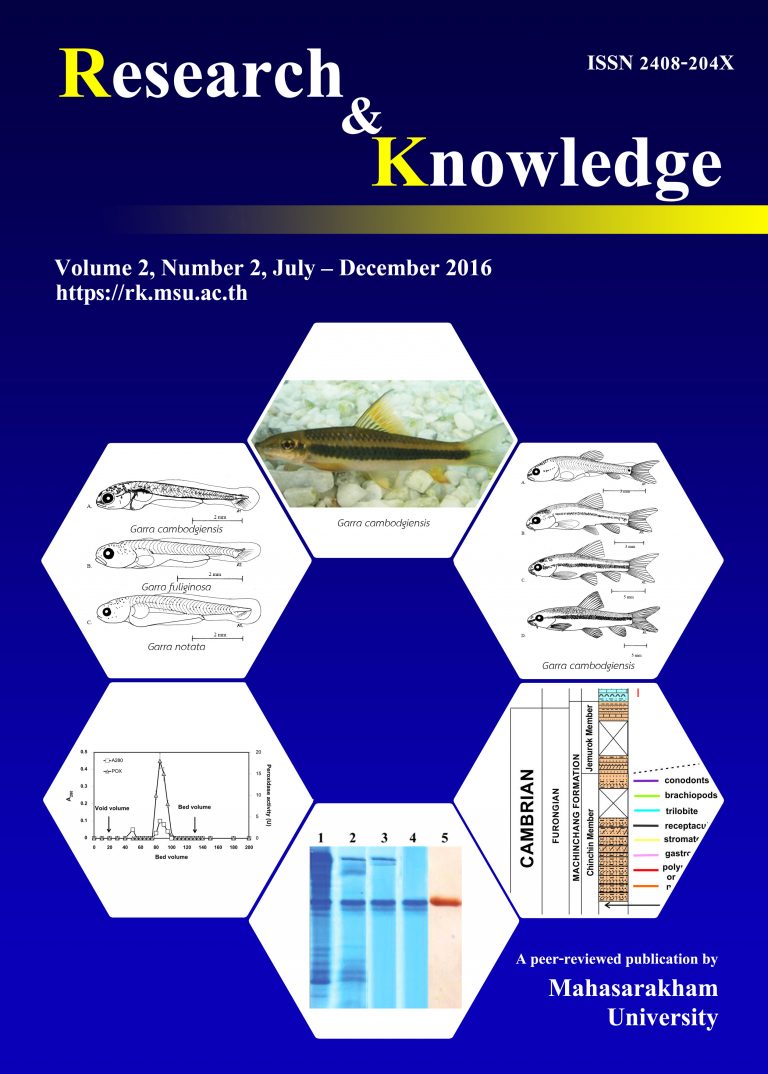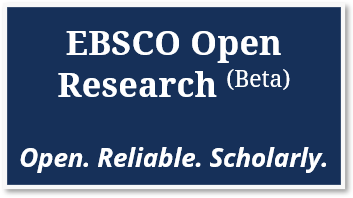Factors affecting the intervention to increase the biosecurity levels of poultry production clusters (PPCs) in Thailand
Keywords:
Biosecurity, poultry production cluster, PPCs, intervention, Nong Khai, ThailandAbstract
The purpose of this study is to investigate the factors affecting the intervention to increase the biosecurity levels of poultry farms in Nong Khai province, Thailand. Research participants were 80 farms from three districts. The research was conducted from July to October, 2013. Before, during, and after the interventions, we studied the results of the two parts: The first part involves the factors affecting changes in farmers’ behavior to improve the biosecurity levels, the second involves the biosecurity levels as well as morbidity and mortality number of chickens both before and after the interventions. The results showed that factors contributing to the success of the interventions to enable farmers make improvements to increase the biosecurity levels in their poultry farms were education, locations of the poultry production clusters and network, leaders of the clusters, gender, performance of government officials, poultry diseases and epidemics on farms, and combine works between the researcher, government officials and farmers. Moreover, it was found that after the interventions, there was a statistically significant increase (P<0.05) in the biosecurity levels of poultry farms in Nong Khai province. At the same time, when biosecurity increased, the morbidity and mortality number of chickens in poultry farms decreased significantly (P<0.05). This phenomenon indicated that many combine factors affect the success of intervention for improving biosecurity level in poultry farms and biosecurity levels affected to morbidity and mortality number of chickens in poultry farms.
References
Aengwanich, W., Intarakhamhaeng, M., Wandee, J., Nongbua, T., Chaiyasak, S., Srikot, P., Thammasar, K., Junsanitsri, N., Sritongtuam, K. and Tawinwaang, T. 2012. Poultry production clusters (PPCs) after AI outbreaks in Thailand: Past, present and future direction. International Journal of Poultry Science 11, 541-550.
Aengwanich, W. 2014. Farm models and eco-health of poultry production clusters (PPCs) following avian influenza epidemics in Thailand. Sustainability 6, 2300-2319.
Charron, D. F. 2012. Ecohealth research in practice. The international Development Research Centre, Ottawa, Canada. Davis, K. and Moore, W. E. 1945. Some principles of stratification. American Sociological Review 10, 242–44.
FAO. 2008. Biosecurity for highly pathogenic avian influenza: Issues and options. FAO, Viale delle Terme di Caracalla, 00153 Rome, Italy.
FAO. 2013. World livestock 2013-changing disease landscapes. FAO, Viale Delle Terme di Caracalla 0053, Rome, Italy.
French, J. and Raven, B. H. 1959. The Base of Social Power. In: Cartwright, D. (Ed.), Studies in social power. Institute for Social Research, Ann Arbor, MI.
Obrist, B., Pfeiffer, C. and Henley, R. 2010. Multi-layered social resilience: A new approach in mitigation research. Progress in Development Studies 10, 283–293.
Souris, M., Selenic, D., Khaklang, S., Ninphanomchai, S., Minet, G., Gonzalez J. P. and Kittayapong, P. 2014. Poultry farm vulnerability and risk of avian influenza re-emergence in Thailand. International Journal of Environmental Research and Public Health 11, 934-951.
Tumin, M. M. 1953. Some principles of stratification: A critical analysis. American Sociological Review 18, 387-394.
Wei, H. and Aengwanich, W. 2012. Biosecurity evaluation of poultry production cluster (PPCs) in Thailand. International Journal of Poultry Science 11, 582-588.
Downloads
Published
How to Cite
Issue
Section
License

This work is licensed under a Creative Commons Attribution-NoDerivatives 4.0 International License.









